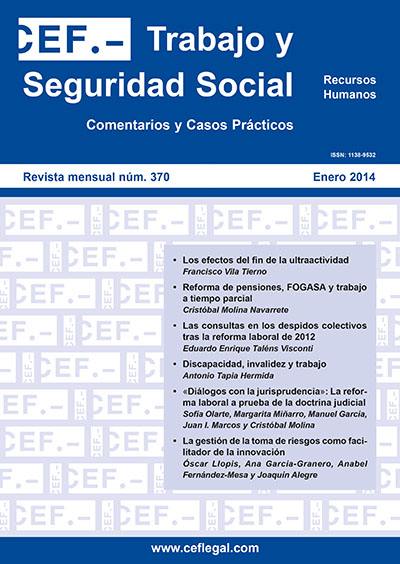Consultations on the collective redundancies after the 2012 Spanish labour reform: a new model for the negotiating process?
DOI:
https://doi.org/10.51302/rtss.2014.2854Keywords:
collective redundancies, consultations deadline, workers' representatives, negotiation, good faithAbstract
The abolition of the employment authorities' approval to carry out collective lay offs has entailed a change in the bargaining model of collective redundancies, since it has encouraged a passive attitude concerning the employer's negotiating conduct. The recent judicial doctrine has tried to face this problem by annulling those collective redundancies, which made meaningless the aiming of the consultations that is to try to avoid or reduce layoffs or mitigate their consequences. The deadline that the labour partners will have to carry out the collective bargaining has also been modified and it is an issue on which judicial doctrine has had occasion to state its opinion.



















